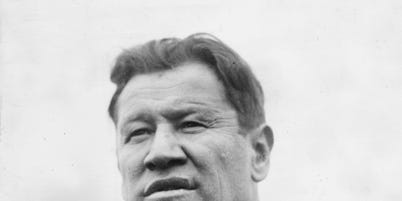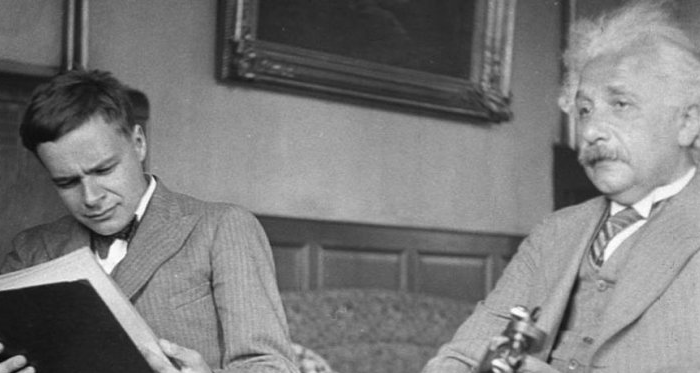Jim Thorpe’s name echoes through the halls of Sporting History, a legend whose story transcends athletic prowess. Born in 1887 to Sac and Fox and Potawatomi parents, he was destined for greatness. His journey from a small town boy to an Olympic champion is captivating, filled with triumphs, tribulations, and a lasting impact on American culture.
Thorpe’s incredible talent shone brightly during his time at Carlisle Indian School, where he excelled in football and track and field. This natural athleticism propelled him onto the world stage at The 1912 Olympics, where he stunned everyone by winning gold medals in both the pentathlon and decathlon. This Jim Thorpe Biography is a testament to his dedication, skill, and the indomitable spirit that defined His Life.
However, Thorpe’S Story isn’T Solely About Athletic Achievements. It delves into the complexities of His Personal Life, His Struggles Against Societal Prejudices, and his unwavering commitment to representing his Native American heritage with dignity and authenticity.
Early Life And Athletic Prowess
Jim Thorpe’s early life was deeply rooted in the traditions of his Sac and Fox and Potawatomi heritage. Born in 1887 on the reservation in Oklahoma, he grew up surrounded by the values of community, respect for nature, and a strong connection to his Ancestral Roots. These early experiences fostered a sense of resilience and determination that would Later Define His Athletic Journey.
From a young age, Thorpe displayed an exceptional talent for sports. He excelled at running, jumping, throwing, and playing various traditional games. His natural abilities were evident in His Agility, speed, and strength. This raw talent caught the attention of scouts who encouraged him to pursue opportunities beyond the reservation. At the age of 16, Thorpe was enrolled at Carlisle Indian School, a prestigious institution known for its rigorous academic and athletic programs.
Carlisle became a pivotal point in Thorpe’S Life, where he honed his skills under the guidance of experienced coaches and competed against some of the best athletes in the country. He quickly rose to prominence as a football player and track-and-Field Athlete, captivating audiences with his stunning performances. His success at Carlisle laid the foundation for his future Olympic glory and cemented his place as a National Sporting Icon.
Olympic Glory And Controversy
The 1912 Olympic Games in Stockholm marked a pivotal moment in Jim Thorpe’s Extraordinary Journey. He arrived as a rising star, carrying the hopes and dreams of his people and a nation eager to witness his athletic prowess on the world stage. The pressure was immense, but Thorpe rose to the occasion with remarkable composure and skill. He dominated both the pentathlon and Decathlon Events, showcasing his versatility and unparalleled athleticism.
His victories were met with thunderous applause and widespread acclaim. Thorpe became an instant legend, capturing the hearts of millions and etching his name into the annals of Olympic history. His achievements transcended mere sporting success; they represented a triumph over adversity and a testament to the human spirit’S Ability To Overcome Obstacles. However, this moment of glory was soon overshadowed by controversy.
Unforeseen circumstances cast a shadow over Thorpe’S Triumphs. It was revealed that he had played semi-professional baseball before the Olympics, violating amateur rules at the time. This revelation led to The International Olympic Committee stripping him of his medals in 1913. The decision sparked outrage and debate, highlighting the complexities of sports ethics and the human cost of rigid regulations. Despite this setback, Thorpe’S Legacy Remained Profound, forever reminding us that true greatness extends beyond medals and accolades.
 Jimmy Carter and Rosalynn Carter: A Love Story Spanning Decades
Jimmy Carter and Rosalynn Carter: A Love Story Spanning DecadesProfessional Sports Career
Undeterred by the Olympic controversy, Jim Thorpe embarked on a remarkable professional sports career that spanned multiple disciplines. He joined The Canton Bulldogs, a pioneering team in the nascent American Professional Football Association (later known as the Nfl), where he quickly established himself as a standout player. His versatility shone through as he excelled at both offense and defense, showcasing his exceptional athleticism and strategic acumen.
Thorpe’s impact on professional football was undeniable. He helped popularize the sport and inspired countless aspiring athletes with his Incredible Performances. Beyond football, Thorpe also pursued a career in baseball, playing for several teams throughout the Major Leagues. His success in both sports cemented his status as a true sporting icon, demonstrating his ability to excel at the highest levels of competition across Diverse Disciplines.
His professional journey wasn’T Without Its Challenges. He often faced discrimination and prejudice due to his Native American heritage. Despite these obstacles, Thorpe persevered, leaving an enduring legacy on the world of sports. His dedication to his craft and unwavering pursuit of excellence paved the way for future generations of athletes, breaking down barriers and inspiring countless Individuals To Pursue Their Dreams.
Later Years And Hollywood
As his athletic career wound down, Jim Thorpe faced new challenges. He struggled financially and sought opportunities To Support His Family. This led him to Hollywood, where he appeared in numerous films during the 1920s and 30s. While these roles brought him some Financial Stability, they often cast him in stereotypical Native American characters, perpetuating harmful representations that lacked authenticity and nuance.
Despite these limitations, Thorpe remained committed to advocating for his people and promoting accurate portrayals of Native American culture. He used his platform to speak out against discrimination and advocate for Social Justice. Thorpe’s experiences in Hollywood highlight the complex intersection of race, representation, and the entertainment industry during a time of significant societal change.
His later years were marked by both personal struggles and a tireless Dedication To His Heritage. His legacy extends beyond the realm of sports; it encompasses his unwavering commitment to social justice and his enduring influence on the cultural landscape. Thorpe’s story serves as a poignant reminder that true greatness lies not only in athletic achievements but also in the courage to fight for equality and authenticity.
Legacy And Recognition
Jim Thorpe’s legacy continues to inspire and captivate generations. His story transcends the boundaries of sports, becoming a testament to human resilience, Athletic Excellence, and the fight for social justice. Despite facing adversity and controversy throughout His Life, he remained an unwavering symbol of perseverance and determination.
His impact on the world of sports is undeniable. He helped popularize football and baseball, paving the way for future generations of athletes. His name remains synonymous with athletic greatness, forever etched in the annals of Sporting History. In a remarkable turn of events, Thorpe’s Olympic medals were officially restored to him posthumously in 1983, solidifying his rightful place as a legend. This recognition serves as a powerful reminder that truth and justice often prevail, even decades after the initial injustice.
Thorpe’s story continues to resonate today, reminding us of the importance of fighting for equality and authenticity. His unwavering commitment to his heritage and his advocacy for social justice serve as a beacon of hope and inspiration for all those who strive to make a difference in the world. His legacy endures not just through his athletic achievements but also through His Courage, resilience, and enduring fight for what is right.










